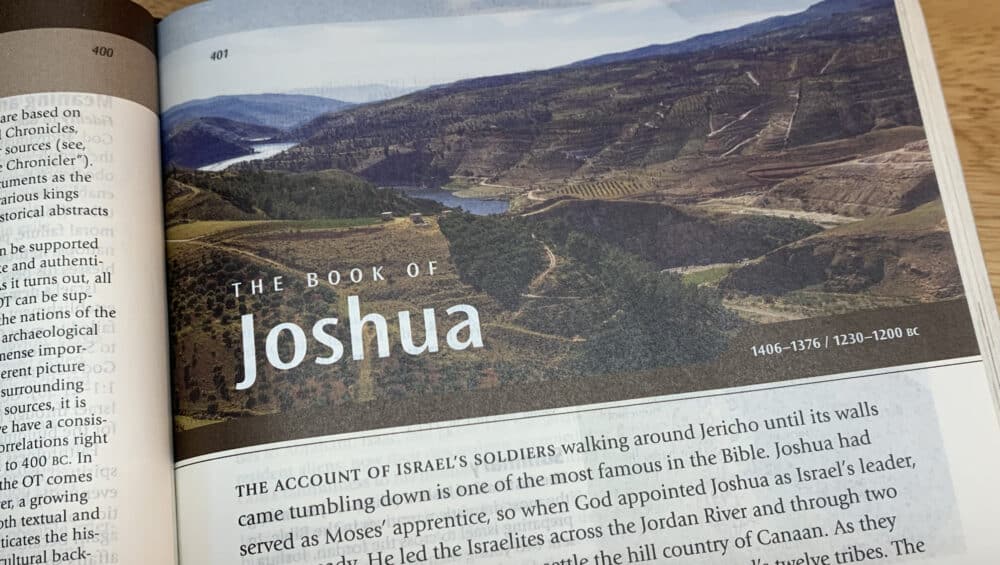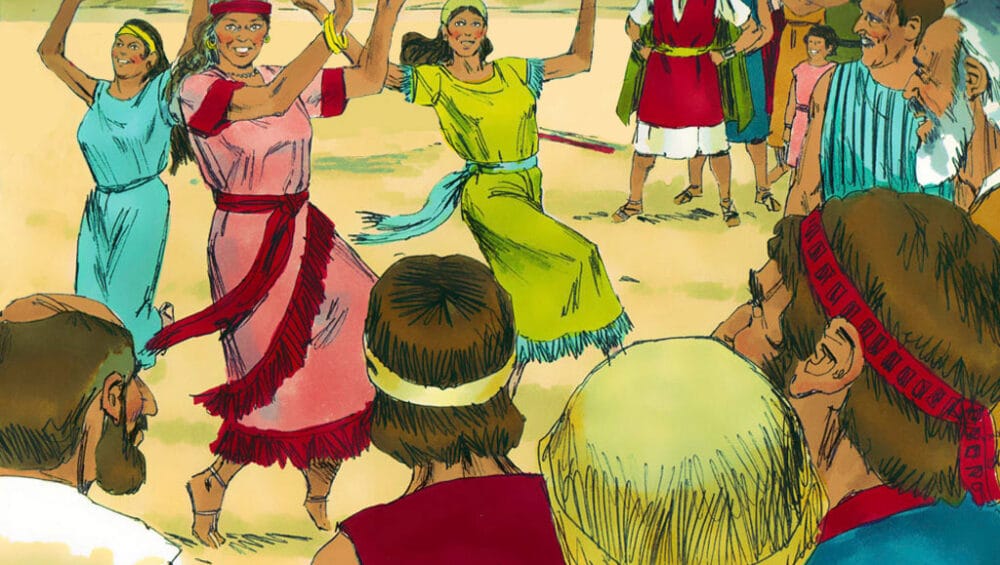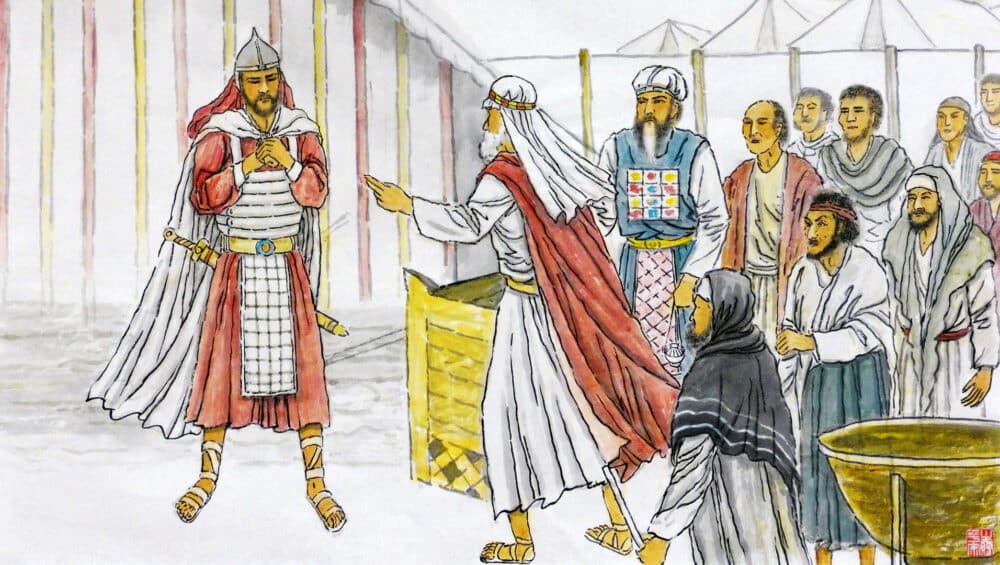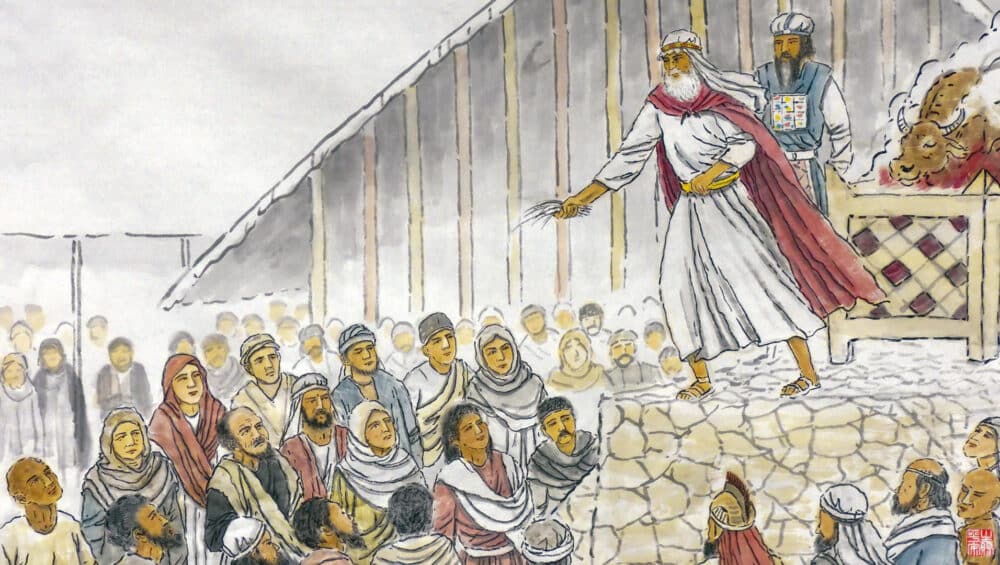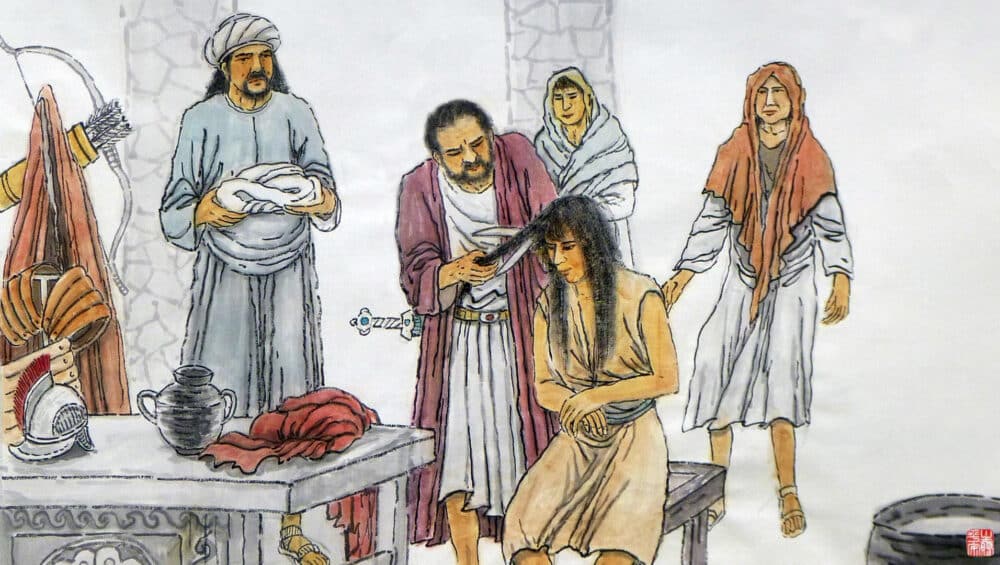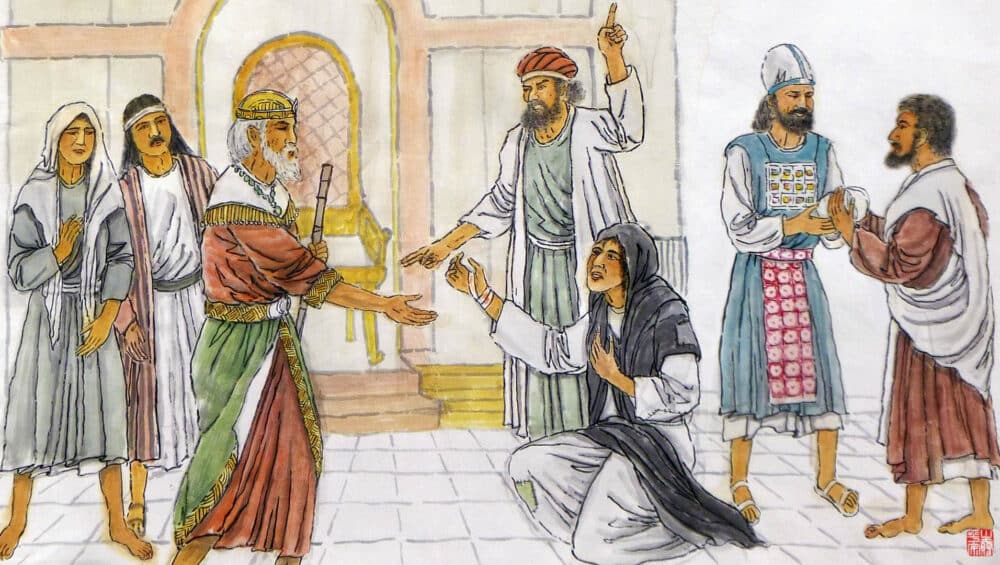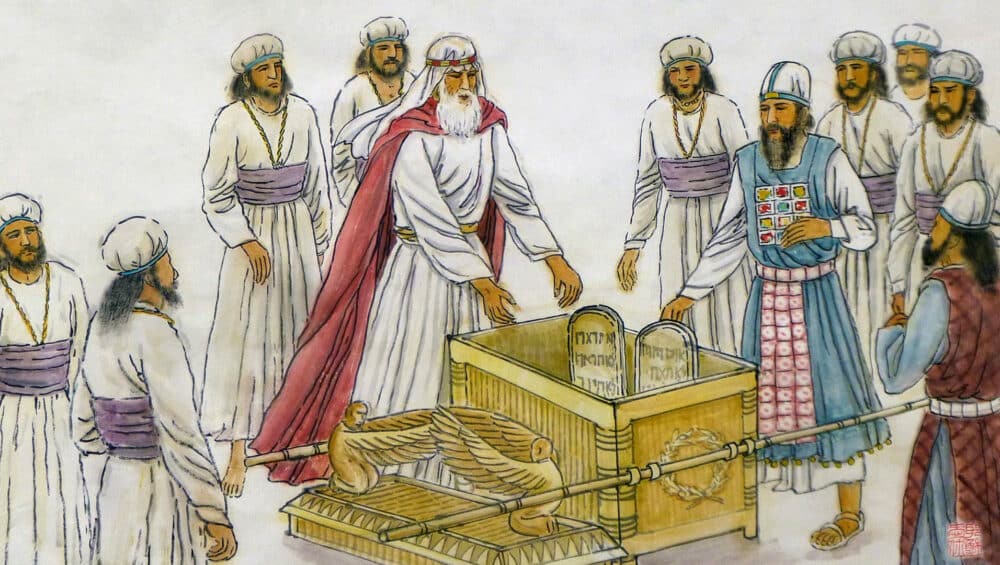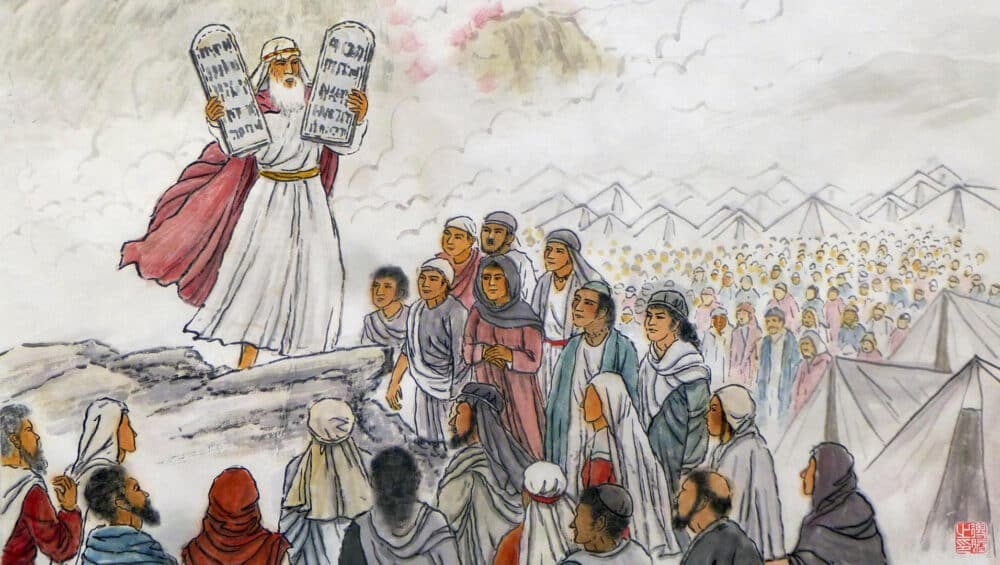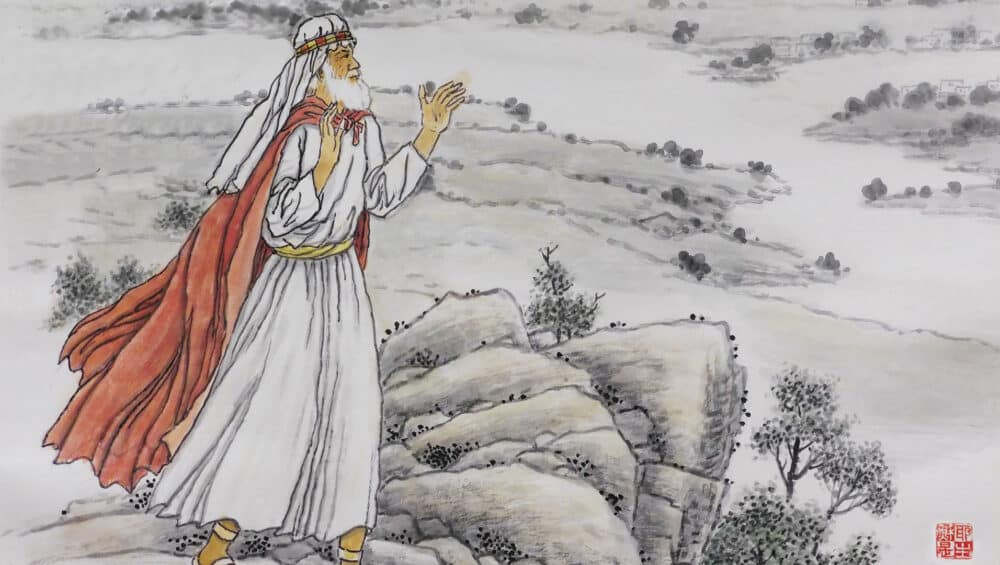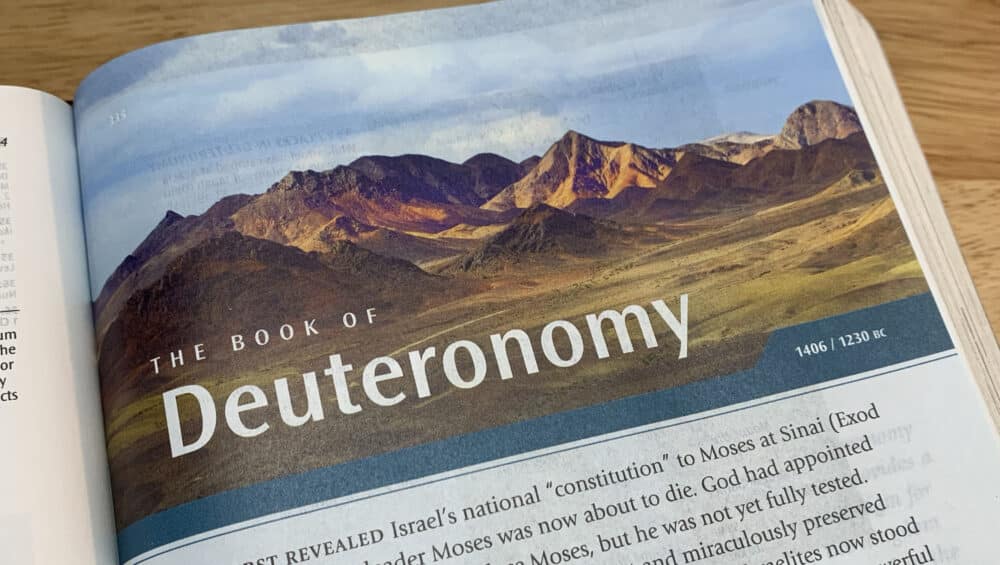Welcome to Livin’ Light’s Bible-In-A-Year challenge of discovering God’s love for us and His purpose for our lives. Here is the format for this great adventure: The daily reading assignment is posted at 5 a.m. After each day’s reading, Leigh An Coplin, the blog host, shares observations and poses questions about difficult passages to Rob Fields, who studied Christian Education at Asbury Seminary and currently teaches Biology in the Orlando area. To start from the beginning, click on 365 Bible Readings and scroll down to Day 1. The reading schedule is taken from The One Year Chronological Bible NLT.
Today’s Reading
— Deuteronomy 33
We are starting a new book today — Joshua. For background information about Joshua, go to http://www.biblestudytools.com/nlt/joshua/
— Joshua 1-2
(1406 BC) Click here for a timeline of the entire Bible.
Questions & Observations
Q. (Deuteronomy 33:1): I don’t think I have heard Moses referred to as the man of God. I can certainly understand the reference. He was truly a follower and a believer. He was the earthly commander for God. Is there anything else to this name that would be worth noting?
A. This is the first occurrence of that name, but it will be used later to describe Joshua and later prophets. I think you have given a good description in your question.
Q. (33:3): “All His holy ones are in His hands.” What does that mean? I’m not sure if he’s talking about the Israelites, Moses, or those in heaven with him — Abraham, Isaac and Jacob.
A. He’s talking about the nation of Israel, which, in my mind, would include Moses, and Abraham, Isaac, and Jacob. Those who belong to God are never lost to Him. That’s the idea behind being in His hands.
Q. (33:6): I guess Reuben’s tribe doesn’t get as much praise as the others? It’s all because of Reuben’s actions long ago or did the tribe follow in the same footsteps? This almost sounds like they have to be blessed solely because they are descendants of Jacob.
A. I would say that is accurate.
Q. (33:7): Judah is the tribe that Jesus is a descendant of, right? What is Moses talking about when he says, “Give them strength to defend their cause?” Do they know that the Savior will come from them? Notice the location of Judah. You can google “12 Tribes of Israel map,” and click on images to see the tribes’ territories. There’s Bethlehem!
A. Good catch there on the map. I don’t think this blessing referring to the Messiah specifically, but rather noting that Moses is telling the people of Judah to be active for the cause of God.
Q. (33:10,11): I don’t understand why Moses says that they teach God’s regulations to Jacob, when Jacob has died. And, why does it say in 11, “Hit their enemies where it hurts the most; strike down their foes so they never rise again.” The Levites supported the priests and didn’t go into battle, so what is this verse about? Those who speak out against God?
A. Jacob and Israel are shorthand for the entire nation. After Solomon, the 12 tribes will divide into two kingdoms, Jacob (North) and Israel (South). Even if we (rightly) think of Abraham as the father of the nation, it is almost never referred to as the nation of Abraham, but of Jacob’s two names: Jacob and Israel. I think you will see very shortly that the priests will indeed have a very important function in the battle against Jericho.
O. (33:12): This sounds like the blessing that a youngest child might receive.
Q. (33:19): Hidden treasures in the sand? What is that?
A. It refers to maritime wealth. These two tribes would be near the shore, and would likely participate in trading with the sea faring tribes in the area.
Q. (33:21): I don’t remember that there was an official “lead” tribe of Israel.
A. There isn’t. This verse is saying that Gad’s tribe got the leader’s share of good land for their flocks on the east side of the Jordan. Today we would call this “the lion’s share.”
Q. (33:24-25): Can you remind us again why Asher is getting a more glorious blessing than the others?
A. I don’t have a firm answer, but both Jacob (back in Genesis) and Moses give Asher a strong blessing. Asher would come to possess fertile land by the Mediterranean Sea, which probably made them wealthy among the tribes.
Q. (34:1,5-8): I can gather from the text that Moses couldn’t see this whole land with regular human sight. The text says, “the Lord showed him the whole land.” I can only imagine how Moses felt to see the land he had waited so long to see and had supported when his followers began to grumble again and again over a 40-year span. It sounds like the details of Moses’ death is a mystery. I just figured he would go directly to heaven, sort of passing the grave. Moses seems like the Energizer Bunny. He climbs a mountain and then dies? But, we don’t know how long he was there, right? Maybe God gave him some time to relax, reflect and enjoy the view?
A. There’s no way of knowing. That is part of the mystery of Moses’ death: we do not know the ultimate cause or location. He is not taken like Elijah, who is swept away in a whirlwind. It simply records that he goes up on the mountain to die.
O. (Joshua 1:8-9): Awesome verses to live by!
Q. (1:16-18): The Israelites sound more supportive of their mission and more obedient than they ever have. Maybe since they have finally seen the Promised Land, their convictions are more steadfast?
A. This is what those particular men (from the tribes that settled on the east side of Canaan) promised to do: in exchange for the land there, they had to promise to basically lead the charge for the other tribes into Canaan. They swore to Moses that they would do this back in Numbers 32. So regardless of their enthusiasm, they are bound to fulfill their vow to Moses.
Q. (Joshua 2:1-24): Is there significance to the fact that the one who hid the Israelite spies was a prostitute? Is saving Rahab and her family significant? I can think of one lesson: No matter who you are or what you do/have done, if you acknowledge God, He will take care of you. How is that?
A. Rahab is a symbol of the “others” that we have discussed off and on: a person who is not an Israelite, but who sees the power of God in their tribes. Basically, she is asking the men for protection so that she and her family will be spared. I would assume that Rahab’s family becomes a part of the community in some capacity, but don’t know that for certain. Rahab’s bravery will also serve as a contrast to the cowardice of a member of the tribe of Judah named Achan, from Judges 7. The stories run together, so we can assume that author desires us to see the contrast clearly: this prostitute who should know nothing of God serves Him, while this son of Judah who should know better is unfaithful.
For further reading: There’s a lot packed into the story about Moses striking the rock for water as the reason for him being banned from the Promised Land. https://www.christianity.com/wiki/bible/why-was-moses-not-allowed-to-enter-the-promised-land.html
Shop: When we trust in God, we experience His goodness. https://livinlight.org/product/god-is-good/
Tomorrow’s reading: Joshua 3-6

